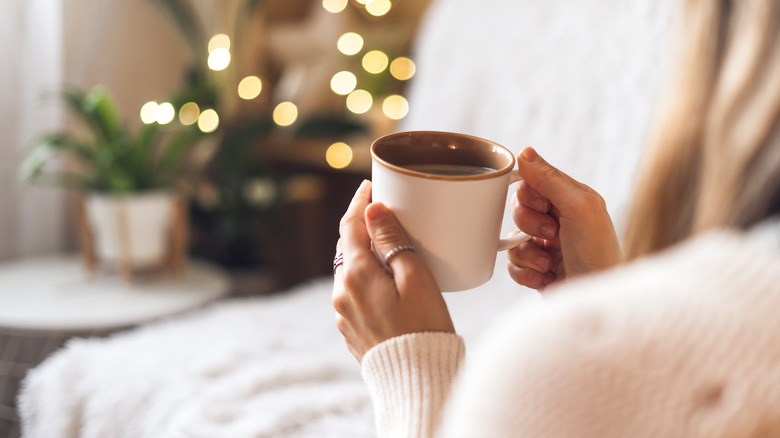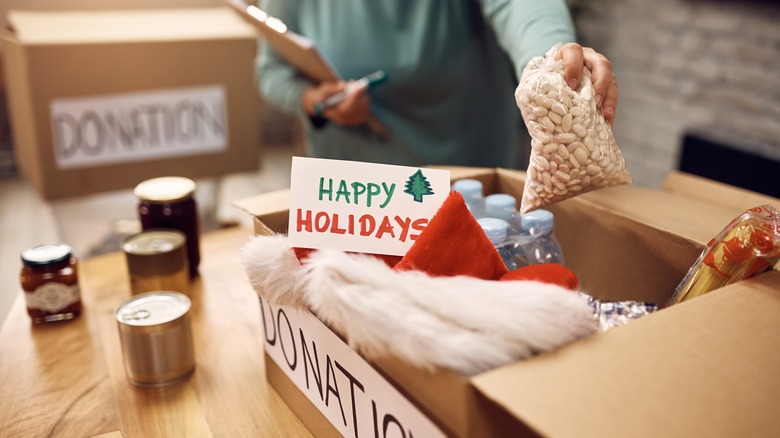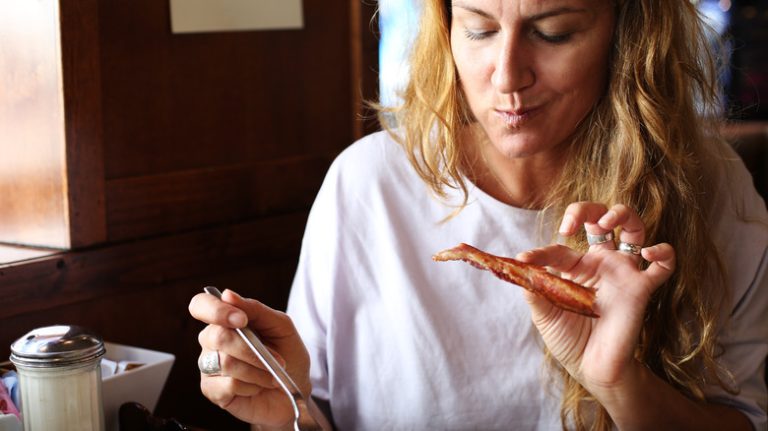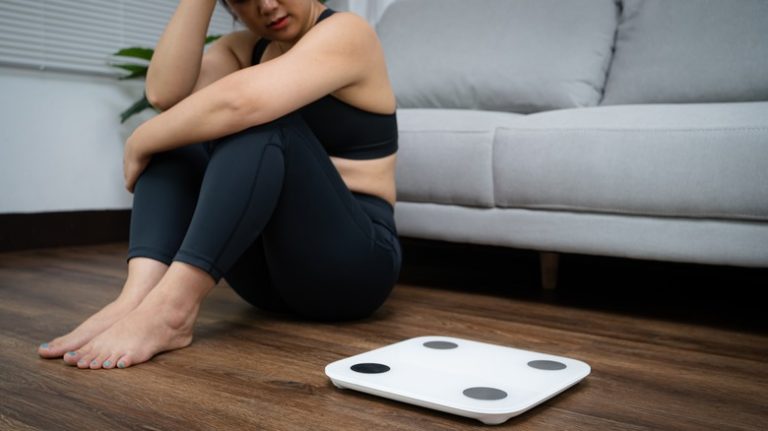In our society, the term “the holidays” almost always feels synonymous with social gatherings. And with that time of year fast approaching, it feels like everyone around us is making plans. But for some of us, the only thing we’ve got on the books is sitting on the couch, blasting WAM on the radio, and sipping flavored liqueur. Others may feel inclined to just skip the whole thing entirely.
In a 2024 survey commissioned by Joy Organics, an incredible 88% of Americans said they view the holiday season as the most stressful time of year (per Study Finds). Dr. Monica Vermani, Clinical Psychologist and author of A Deeper Wellness: Conquering Stress, Mood, Anxiety and Traumas, understands that sentiment.
“The holiday season is a time of year that many people find very challenging, distressing, and lonely for myriad reasons,” says Dr. Vermani. “Since we live in an increasingly multicultural society, with vastly different celebration traditions and times, many of us find ourselves feeling isolated and apart from the joy of the season. Others are dealing with grief, estrangement, or economic barriers to spending time with loved ones… challenges that seem amplified and particularly difficult to cope with, as everyone around us enjoys and celebrates the season.”
In an exclusive interview with Health Digest, Dr. Vermani supplies us with three powerful strategies she says will not only help us survive this holiday season, but thrive in it.
Rewrite and reframe your concept of the holiday season

“Dr. Wayne Dyer once said: ‘If you change the way you look at things, the things you look at change,'” Dr. Vermani reminds us. “If you are someone who struggles with the Holiday Season, rethink and overwrite your yearly narrative about the Holiday Season as a period of sadness. Reframe it as a perfect time to press pause, and spend time taking care of yourself, resting, and relaxing. Embrace the concept that spending time alone can be rewarding, fulfilling, and energizing.”
Many of us tend to beat ourselves up in quiet moments — deciding that perhaps the reason that we’re alone is some fault of our own. But Dr. Vermani points out that, “Being alone does not have to mean being lonely. By reframing, rewriting, and changing how we think about the Holiday Season, we are essentially letting go of what no longer serves us. We often suffer in life because we fail to see situations as they are. If the Holiday Season is not a time of year you enjoy, or it is one that you associate with negative memories, you can take charge of that old story and reframe this time of year as just another day or two of downtime. After all, for many people, it is just that… simply another day. You can choose to remove expectations, and simply live in the moment, as it is, rather than as you imagine it ought to be.
Create a new tradition that has meaning for you

Tradition often plays a big role in how people celebrate the holidays. But if the traditions of others don’t resonate with you, or they elicit uncomfortable feelings, Dr. Vermani explains that you are well within your rights to redefine the narrative.
“Why not become a non-traditional traditionalist? If Holiday season traditions are not part of your culture, or if these traditions cause you sadness, or no longer feel authentic to who you are today, there’s nothing stopping you from creating a new annual year-end tradition. Think about what brings you joy, and find a way to incorporate your love of art, or an annual mini road or train trip to a nearby city, a movie marathon weekend, or time spent in quiet contemplation … something that makes the precious few days when everything seems to slow down a little meaningful and special for you. Ask yourself what you would truly enjoy, create a new tradition for yourself, and make it happen,” says Dr. Vermani
She explains that by creating your own traditions you’re actively changing the power dynamic. “It shifts you from feeling left out, isolated, and overwhelmed by what is happening around you, to very much in control of your life and your choices. You are, after all, meant to live your life authentically, not follow norms and traditions that you don’t relate to and hold no meaning for you.” And as an added bonus, Dr. Vermani says, “As you start a new tradition, you may find people who share your perspective, interests, and passions.”
Show yourself a little love

Drazen Zigic/Shutterstock
A lot of people get so wrapped up in pleasing others during the holidays that they forget to take care of themselves. But Dr. Vermani reminds us that we have the opportunity to direct that attention inward instead. “Stick to healthy self-care routines: including exercise, sleep, healthy eating, and other self-care strategies that energize and support you in your daily life.” She recommends getting out and feeling the sun on your face if the weather allows, as the holiday season is also the time of year when many of us experience Seasonal Affective Disorder.
“Surround yourself with positive people. Healthy self-care also involves proactively connecting with other people, especially when you are dreading the thought of prolonged isolation,” Dr. Vermani explains. “Stave off feelings of isolation by dedicating a few hours to volunteering with an organization in your community that supports vulnerable, disenfranchised people, or reach out to a neighbor, a friend, or a family member who may be struggling, unwell, or alone.”
How can these tips help you?

Maridav/Shutterstock
According to Dr. Vermani, maintaining a healthy self-care routine allows us to regain control over situations that may otherwise drain our energy and self-confidence. “We owe it to ourselves to be our own best friend, and to make the effort to set ourselves up for success, happiness, and connection every day,” she says. “Taking good care of ourselves, and taking control of our circumstances and settings, prevents negative rumination about past hurts and regrets, and forecasting of worst-case scenarios. It also empowers us to take control of our thoughts, moods, and choices, and create new, more positive memories rather than reinforce negative self-talk and negative memories.”
To learn more about Dr. Monica Vermani visit her website or check out her Corporate Wellness site. To buy her book, A Deeper Wellness: Conquering Stress, Mood, Anxiety and Traumas, click here. You can also listen to her podcast, or follow her on Instagram, Facebook, Twitter, or Youtube for regular updates.




